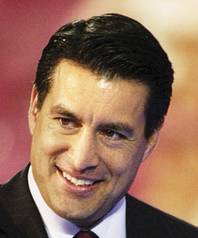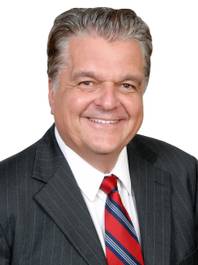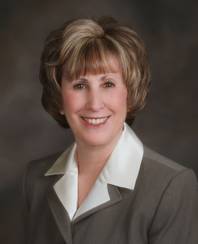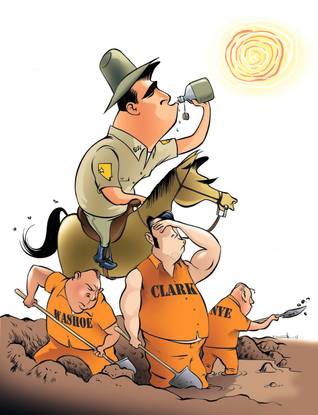Sunday, March 13, 2011 | 3 a.m.

Brian Sandoval

Steve Sisolak

Susan Brager
Sun archives
- Counties fearful of Sandoval’s budget (3-8-2011)
- Gov. Brian Sandoval’s budget means job, service cuts for Clark County (1-26-2011)
- County struggles to balance budget as property tax revenue tanks (1-12-2011)
- Gov. Brian Sandoval closes loophole, will maintain payroll tax rate (1-12-2011)
- Loophole a threat to Gov. Brian Sandoval’s tax pledge (1-12-2011)
- County leaders worry state will raid local funds amid shortfall (1-10-2011)
- Gov. Brian Sandoval’s quest: Blocking a tax hike (1-9-2011)
- Sandoval increasingly isolated in his anti-tax stance (12-29-2010)
- State has upper hand in budget turf war (12-27-2010)
- Sandoval to build own budget (12-22-2010)
- Panels propose ideas to squeeze state budget (12-4-2010)
- Polished knife still cuts deep into state’s budget (11-28-2010)
- Expect Sandoval to flex his newfound political capital on his anti-tax pledge (11-10-2010)
- Let Sandoval take heat for budget, Democrats say (11-5-2010)
- Brian Sandoval: Let local officials raise taxes (10-19-2010)
- $2.5 billion state budget deficit: ‘Best-case scenario’ (4-23-2010)
- Proven again: Home rule a lost cause (7-28-2009)
Nevada’s counties have complained loudly that their state overlords plan to steal tax revenue and force on them services provided by the state. Gov. Brian Sandoval’s budget would land a combined $325 million hit to county coffers statewide.
The governor has offered to soften the blow by giving counties power to offset the losses with local tax increases. The governor won’t abide raising taxes at the state level, but he won’t stand in the way if local governments do.
Counties have shown no interest in accepting Sandoval’s offer despite decades spent complaining about the lack of “home rule” — local autonomy from the state on tax increases and other matters of governance.
“They don’t want fiscal home rule,” Sandoval said last week.
From the counties’ viewpoint, however, the governor is asking them to pick their poison.
Sandoval’s offer of home rule is a political ploy to allow him, and the Legislature, to outsource the unpopular task of raising taxes, local officials say. Sandoval, after all, has staked his political career on a pledge not to raise taxes.
Others note that even if counties were to raise taxes — and elected officials were willing to take that political hit — there is no guarantee the state wouldn’t siphon off that money, too.
“This is about (Sandoval) keeping a campaign promise without being willing to make tough decisions,” Clark County Commissioner Steve Sisolak said.
The back-and-forth reflects years of mistrust and accusations of mismanagement from both sides that have intensified as tax revenue has dwindled and budget deficits ballooned.
Conservatives and business groups have blamed local governments for creating their own financial troubles, arguing they have granted overly generous contracts to their employee unions. Clark County firefighters’ alleged abuse of sick leave has provided convenient support for this argument.
Local officials point the finger at the state — although usually privately, so as not to anger politically influential public-sector unions. Lawmakers have never granted state workers the same right to collective bargaining enjoyed by local government employees. Plus, the Legislature sets the collective bargaining rules under which local governments negotiate.
This is a fight between unequal foes: The state constitution gives the governor and Legislature authority over counties and cities.
That was evident than during the 2009 Legislature, when the governor’s budget proposed taking some of Clark and Washoe counties’ property tax revenue. Clark County suggested the state target a different fund, one for buildings and parks. Lawmakers thanked the county for the brilliant idea and took both pots.
Recognizing their vulnerability to such tactics this session, counties successfully pushed a ballot measure asking voters whether the state should get local governments’ permission before taking their money or transferring to them responsibility for services.
Even though it passed by wide margins — 55 percent of the vote statewide, 54 percent in Clark County — the governor and lawmakers have dismissed the advisory question as a misrepresentation of the realities confronting the state. Nevada’s budget is about $2.2 billion short to continue current services.
The sacrifice should be shared by governments at all levels, state officials say.
As a result, Sandoval’s budget would cost Clark County $125 million over the next two years — in diverted tax revenue and the cost of providing services now offered by the state. And county officials are looking at budget cuts of 9 percent.
Clark County Commission Chairwoman Susan Brager said if the state didn’t saddle the county with unfunded mandates and take its money, it wouldn’t be contemplating cuts. “Don’t put it on us. If you need to raise taxes, raise taxes,” she said of state officials.
Yet Brager, like Sisolak, said if the state pushes services to the counties and takes their money, she would not want the ability to raise taxes.
Dale Erquiaga, Sandoval’s senior adviser, said the governor’s budget passes on services that should be handled locally. Counties, for their part, aren’t stepping up to find solutions to these problems, he said.
“They’re not coming to the governor with a plan. Instead, they’re coming and saying, ‘It can’t be done. We can’t live with this change,’ ” Erquiaga said. “That’s not an acceptable answer.”
But Clark County Commissioner Tom Collins thinks the governor’s talk of granting counties power to raise taxes is just that — talk.
“If the governor gave us the power to raise the fuel tax, property tax, sales tax, I’d be as happy as a pig in cotton,” he said. “I’d be responsible to my constituents.”
But the former assemblyman says the governor and Legislature have a monopoly on the ability to raise taxes, and that means for 120 days every two years Carson City is the center of Nevada’s political universe.
“The Legislature is not going to give away that much power,” he said. “If they did, they might as well be a pencil store in Carlin.”


Join the Discussion:
Check this out for a full explanation of our conversion to the LiveFyre commenting system and instructions on how to sign up for an account.
Full comments policy